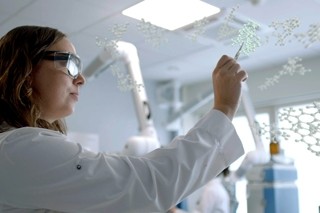Nelson Labs offers comprehensive raw materials testing through advanced material characterization methods. We support medical device, pharmaceutical, and biologics manufacturers in assessing the chemical and toxicological safety of polymers, excipients, and other raw inputs — providing clarity and confidence in your materials strategy.
Raw Materials Testing to Ensure Product Safety and Regulatory Compliance
Raw materials are the foundation of every medical, pharmaceutical, and tissue-based product. Contaminants, unknown impurities, or variable material composition can introduce serious risks — from product failure to patient harm.
That’s why raw materials testing is essential early in the product development and manufacturing lifecycle. Nelson Labs provides advanced material characterization services to assess chemical composition, identify potential toxicological risks, and support biocompatibility strategies — all tailored to the unique regulatory requirements of your industry.
Our testing screens raw materials for:
- Volatile and semi-volatile organic compounds
- Elemental impurities
- Additives, residual monomers, and processing aids
- Extractables and leachables potential
We align our testing with ISO 10993, ICH Q3D, USP <232>/<233>, and other global standards — delivering both data and expert analysis to guide safe, compliant material use.
A summary list of available tests applicable to medical device manufacturers:
- Cytotoxicity
- Bioburden
- Fourier Transfer Infrared (FTIR) Spectroscopy
- Differential Scanning Calorimetry (DSC)
- Particulate Matter
- Physicochemical USP Plastics Tests
- Residual Manufacturing Materials – Cleaning Validation
For pharmaceutical manufacturers, additional tests may include screening active pharmaceutical ingredients (APIs) for potency, purity, and impurities; chemical analyses of pharmaceutical containers and stoppers using extractables and leachables (E&L) testing and analysis of raw materials used in pharmaceutical production (e.g., water sources).



